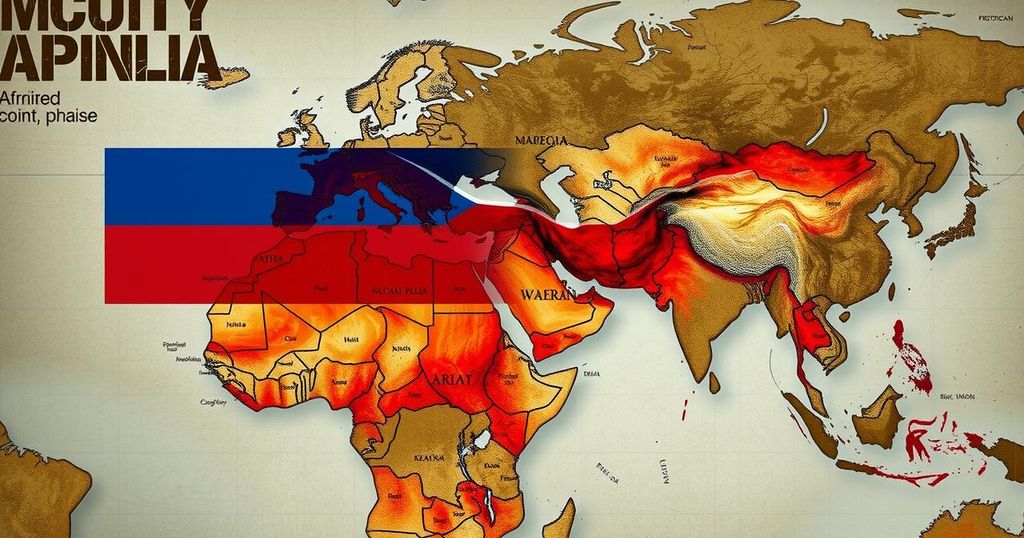The loss of Syrian President Bashar al-Assad has severely impacted Russia’s standing in the Middle East and jeopardized its influence in Africa. Russia’s military withdrawal from key bases has raised concerns among African nations over Moscow’s ability to provide security, thereby necessitating a reevaluation of its role in the region. The article highlights how these developments might lead Russia to pursue a strategy emphasizing diplomatic engagement and regional partnerships to mitigate its declining power.
The recent upheaval in Syria, particularly the downfall of President Bashar al-Assad, has significantly undermined Russia’s position as a great power in the region. This event, coupled with Russia’s military entanglements in Ukraine and intelligence failures, has rendered Moscow incapable of supporting its key ally. With the retreat from strategic locations, such as the Tartus naval base and the Khmeimim airbase, Russia’s operational strength has diminished. These locations were pivotal for logistical support in both Syria and Africa, where Russian influence has begun to wane.
The implications of this shift are profound for Russian engagements in Africa, which have leveraged military capacities in the Middle East for support. As Russia’s ability to protect strategic interests internationally wanes, African nations are reassessing their reliance on Moscow for security. The once-favorable perception of Russia as a formidable defender against Western influence is now in jeopardy, primarily due to the collapse of its military posture in Syria and the potential loss of logistical capabilities.
Furthermore, the Kremlin’s hesitancy to deploy its resources back to Syria during the last phase of the Syrian conflict highlights the importance of Africa in Russia’s foreign policy. The perception of failure in Syria may negatively affect Russia’s operations in African nations, where it has previously positioned itself as a principal security partner against insurgencies. Though the Wagner Group has extended its influence in regions like Mali, the logistical dependencies on Syria for operational support bring new challenges following Assad’s fallout.
Equally crucial is the potential loss of lucrative resources that flow from African nations backed by Russia, as evidenced by gold reserves in Sudan and Mali that have provided crucial support for Russia amidst sanctions. The Kremlin is now exploring diplomatic channels with Syria’s new powers to reestablish its foothold and maintain its influence on the African continent. However, doubts remain about the effectiveness of such strategies in light of diminishing military capabilities abroad.
The article addresses the implications of the Syrian civil war on Russia’s geopolitical influence, particularly in Africa. Following the fall of Assad, there are significant hurdles concerning Russia’s military strategy as it loses critical bases that served as launching points for operations in Africa. With challenges in Ukraine complicating matters further, Moscow’s credibility as a security provider is under examination by African states seeking stability amid growing conflicts and the consequences of Russian operations. Ultimately, the analysis of Russia’s changing role illustrates a pervasive concern regarding its capacity for international power projection outside its immediate borders.
In conclusion, the collapse of Russian influence in Syria serves as a crucial juncture for its relationships in Africa, challenging the narrative of Russia as a powerful ally. As logistical support dwindles and military capabilities come under scrutiny, African nations must reconsider their security partnerships with Moscow. The pathway forward for Russia will hinge on successful negotiations with Syria’s new authorities and restructuring its focus to enhance soft power through regional partnerships. The anticipated impacts on Russian operations and political leverage in Africa reveal a complex interplay of regional dynamics that will continue to evolve.
Original Source: foreignpolicy.com






